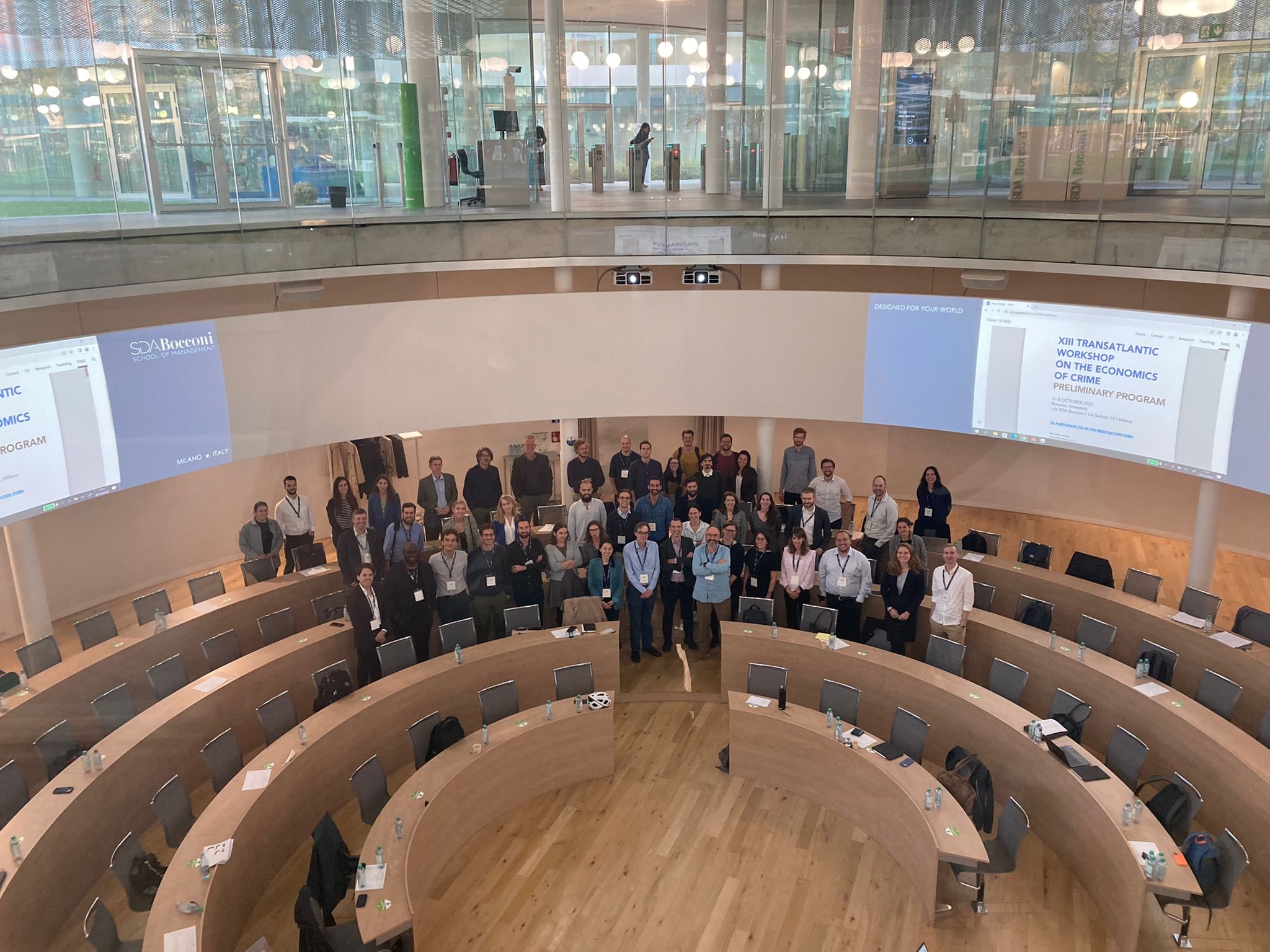Reflections on the Transatlantic Workshop on the Economics of Crime
The 13th Transatlantic Workshop on the Economics of Crime has been a success! Interesting presentations, friendly environment and fastastic keynotes.
Hereafter, a brief summary of the presentations.
Opening the workshop, ANNA BINDLER (University of Cologne presented work on gender biases in police officers' behavior in the US.
Afterwards, JAMEIN P.CUNNINGHAM (Cornell University) tell us about the impact of affirmative action litigation on police killings in the US since the 1970s.
Closing the session on "Discrimination", MAGDALENA DOMINGUEZ (Uppsala University) talks about how neighborhood reputation impacts schooling paths of teenagers in Sweden.
After the coffee-break, CARLOS SCHMIDT-PADILLA (Stanford University) opens the session on Organized Crime with work on the effect of gang competition on extortion behavior in El Salvador.
Then, JOSÉ RAMÓN ENRIQUEZ (Harvard University) shows how a campaign-funding electoral reform increased attacks to politicians in Mexico.
CHRISTOPHER HANSMAN (Imperial College) presents work on the community impact of mass incarceration in the US.
MICHAEL MUELLERSMITH (University of Michigan) shows novel estimates of children's exposure to the US justice system.
It follows a series of short talks about Algorithms. MAX KAPUSTIN (Cornell University) talks about gun violence in Chicago, SERGIO GALLETTA (ETH Zurich) shows how it is possible to predict corruption in Brazil using ML tools, and WILL DOBBIE (Harvard Kennedy School) presents work on judges performance against algorithms in the US.
Wrapping up the day, FEDERICO VARESE (University of Oxford) gives a fantastic keynote on Organized Crime and shares ongoing work on criminal governance in London.
To start the 2nd day, AMANDA AGAN (Rutgers University) talks about the labor market effects of removing criminal records in the US.
Later, HENRIK SIGSTAD (University of Oslo) presents work on the violation of monotonicity assumption in judge IV designs.
LAURA SCHIAVON (PUC-Rio) presents work on the impact of judge productivity on crime in Brazil.
In the last session on domestic violence and sex crimes, ESTHER ARENASARROYO (Vienna University) discusses the impact of non-mandatory police reporting on domestic violence, GERMAIN GAUTHIER (CREST) presents a work on sex crimes and the me too movement. MARTA MARTÍNEZ MATUTE (Universidad Autónoma de Madrid) shows some evidence from Spain on the reporting of intimate partner violence.
Last but not least, CRYSTAL YANG (Harvard University) gives a fantastic keynote on algorithm recommendations and human discretion.
